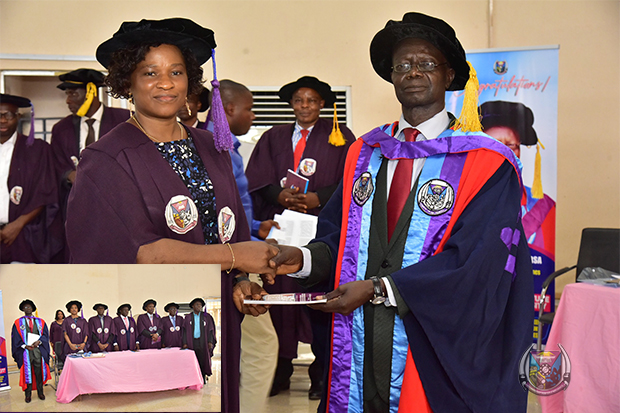

A professor of animal breeding and genetics has raised the alarm of the possibility of indigenous poultry and livestock going into extinction due to indiscriminate breeding and mating to produce exotic breeds. Professor Clifford Chineke stated this while delivering the 160th inaugural lecture of the Federal University of Technology Akure, FUTA on the 17th of October 2023.
Speaking on the topic, “Peculiarly Inherited Genes in Animal Breeds: The Wonders of their Diverse Expressions for Immutable Generational Necessities”, the don said some breeds of animals are community specific both in the nation and other parts of the globe and they have become endangered species in Nigeria. According to him,” For the assurance of purity, indiscriminate breeding/mating should be avoided and discouraged.” He said this will prevent further gene erosion of inherent genetic resources of specific breeds.
The lecturer said time has come for all tribes and communities in Nigeria to identify with the production of indigenous breeds of interest. He said this will help to produce more indigenous livestock and home bred local breeds for more socio-economic impact and prevent these animals from going into extinction. Chineke stated that, “Some breeds of animals are community specific both in our nation and other parts of the globe. Some local breeds of domestic chicken are identified with tribe or community they came from such as Fulani ecotype, Yoruba ecotype and Nsukka ecotype Chicken. Let us bring back home our indigenous /local breeds for socioeconomic reasons and prevention of these animals from going into extinction. All tribes and communities are hereby challenged to follow suit and identify with the production of indigenous breeds of interest.” The don said for continuity of life, breeding activities should be continued and sustained however systematic standard approaches are to be employed to harness the potentials of animal breeds for improved livestock production and productivity. Chineke highlighted factors for animal breeds to express their genetic potential to include standard animal research farms/ laboratory, nutrition, management skills, up-to-date trained manpower, good transport network and very good ecosystem.
He underscored the importance of research in breeding and genetics citing that successful research breakthrough gave birth to hybrid breeds of animals in some foreign and Nigerian universities such as Shikka Brown chickens in Ahmadu Bello University Zaria, FUNAAB Alpha chickens and Niger Hybrid pigs from the Federal University of Agriculture Abeokuta.
Professor Chineke said research is capital intensive particularly in the specialized areas of modern molecular genetic technologies. He said there is the need for more funds and interventions from the Government, Nongovernmental organizations and University management. He said diverse genetic expressions in livestock animals are crucial for ensuring the resilience, adaptability and sustainability of livestock populations over generations. This diversity he said is essential to meet the evolving needs of the livestock industry and address challenges such as disease resistance, climate change, adaptation, environmental adaptability, and sustainability of unique livestock populations and changing consumer preferences for livestock products. Professor Chineke said "genetics has its deep impact on the cultural and social evolution of mankind. It has helped humans in the improvement of agricultural resources and to cope with various hereditary disease challenges. Significant economic uses of genetic knowledge have been accomplished in the areas of eugenics, agriculture, medical science and legality". Speaking at the lecture, the Vice Chancellor Professor Adenike Oladiji, in her capacity as chairman commended the lecturer for the cerebral delivery of the lecture describing him as a prolific researcher who has contributed immensely to the body of knowledge in his area of specialization.
She said the lecture is apt given the need for increased food security in Nigeria and the necessity of proper breeding practices for improved animal production.
The Vice Chancellor noted that the Lecturer showed erudition, scholarship and prodigious contribution to knowledge.